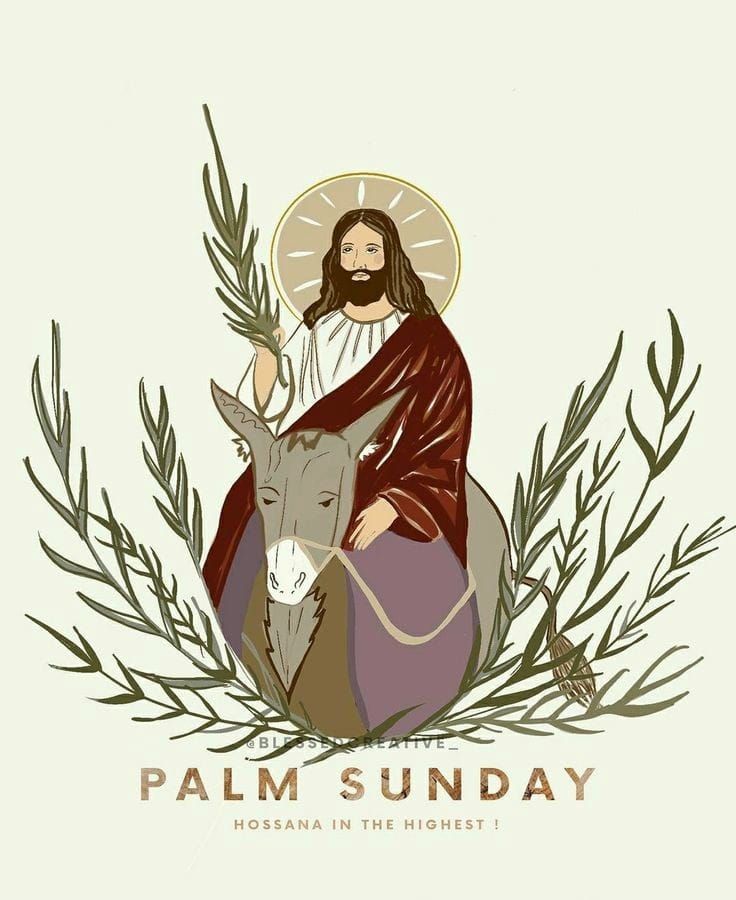
We are entering Holy Week by commemorating Palm Sunday today. The readings are well arranged in such a way that the passage concerning the entry of Jesus into Jerusalem is mediated before the blessing of the palm. After the blessing of the palm, we enter the church as a procession carrying palms in our hands, reminding ourselves of Jesus entry into Jerusalem. We read the entire passion narrative during the gospel. Thus, we have a miniature of all that we celebrate this week. Palm Sunday reminds us of the royal entry of Jesus into Jerusalem. Whoever Jesus encountered during his public ministry, he told them not to reveal his identity as the Messiah or what he had done for them. But now Jesus allows people to proclaim him as the Messiah and welcome him. Jesus chose donkey to fulfil the prophecy concerning him: “Rejoice greatly, O daughter Zion! Shout aloud, O daughter Jerusalem! See, your king comes to you; triumphant and victorious is he, humble and riding on a donkey, on a colt, the foal of a donkey.” (Zech. 9:9) People gathered there and spread their clothes on the road and branches, a sign of their deep respect and honour for one who comes in the name of the Lord to redeem and reestablish the throne of King David. They shout aloud hosanna, which means ‘to save’ or ‘deliver.’
The people of Jerusalem, along with his disciples, ardently believed that Jesus was coming to Jerusalem to save them from all their enemies, especially the slavery of the Romans, and reestablish the kingdom of David. They expected from Jesus a political Messiah. In fact, Jesus came to redeem them, but not for mere political liberation. Jesus did not have the intention to go to war against the enemies of Israel; instead, he came to offer his life as a sacrifice to redeem humanity from the slavery of sin so that they could enjoy the perfect liberation, both spiritual and physical. In the first reading, we see the prophet Isaiah has already prophesied the suffering of Jesus for our sake: “I gave my back to those who struck me and my cheeks to those who pulled out the beard; I did not hide my face from insult and spitting.” (Is. 50:6) The second reading reminds us of the greatness of this self-emptying love of Jesus by reminding us of his eternity: “who, though he existed in the form of God, did not regard equality with God as something to be grasped, but emptied himself, taking the form of a slave, assuming human likeness. And being found in appearance as a human, he humbled himself and became obedient to the point of death—even death on a cross. (Philip. 2:6-8)
As we commemorate Palm Sunday, let us accept the fact that we too are in need of liberation. It may be in our personal lives or in political or material liberation. Let us surrender our lives before Jesus, like the people of Jerusalem; let us spread all our bondages, worries, and fears with great faith and trust, and allow him to walk over them and enter our hearts. Let our prayer be hosana. He offered himself once and for all. May we experience the salvation and liberation that Jesus is…